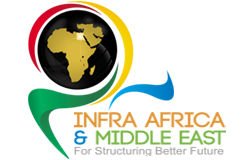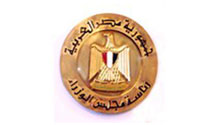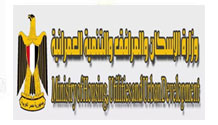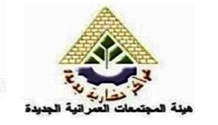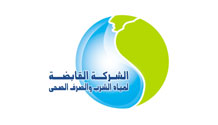Egypt Market Overview :
Over all total market size in 2016 is estimated 6.023 USD Billion while estimated to be 6.358 USD Billion in 2017
Source, US embassy report published 7/27/2016
| Year | 2005 | 2015 |
| Water service coverage ─ millions | 2.5 No coverage 7.5 Rotation system 15 Unacceptable Service |
98 percent |
| Wastewater service coverage | 40 percent | 50 percent 85 percent Urban 10 percent Rural |
| Water production ─annual average | 18 million m3/day | 27 million m3/day |
| Water treatment plants | 1005 Plants | 2845 Plants |
| Wastewater treatment plants | 149 plants | 395 plants |
| Water distribution networks | 74,000 km | 167,000 km |
| Wastewater collection networks | 28,000 km | 48,000 km |
TABLE SOURCE: Holding Company for Water and Wastewater.
The Egyptian government practices a revenue generating method to raise funds for new sewage networks and potable water stations. The government plans to expand services in Upper Egypt and rural areas to reach the low and middle class population. The Government of Egypt has multiple projects planned through the public-private partnership model, including the Abu Rawash Water Plant and the 6th of October Plant.
The Egyptian Military Commercial Unit is active in the water sector and builds some of HCWW’s plants. The military also plays an active role in the desalination and reverse osmosis plants in areas adjoining the Mediterranean and the Red Sea.
Egypt is interested in updating its technology in the water sector, in areas such as water desalination, reverse osmosis, and the design and construction of new water plants in rural areas. According to the HCWW, there is a strong need in the following areas:
- Project design and construction of water treatment plants ranging in size depending on the population of the governorate;
- Project design and construction of desalinization plants; and Water and wastewater treatment equipment and technology.
Africa Market Overview :
In order to reach basic development standards for water, Africa needs U.S. $50 Billions dollars in annual investment. Currently less than U.S. $5 billion dollars per year is committed by ICA members to water projects in Africa
In parts of Africa physical infrastructure issues such as old and leaking pipes, and operational issues such as lack of metering, poor billing and collection procedures as well as illegal water connections represent a loss of revenue for the utility. This is referred to as non-revenue water (NRW). Reducing the non-revenue water ratio would not only bring more clean water to consumers – but it would also increase financial sustain- ability of utilities.
During 2013,Infrastructire Consortium Africa - ICA- members committed $5bn to water projects in Africa. In total, during 2013, sub-Saharan African projects received just over $4bn. Of these regions, West Africa and Central Africa received the most funding for water projects, benefitting from $1.5bn and $1.1bn respectively, while East Africa had $814m of commitments and Southern Africa, including the Republic of South Africa, received $621m. North African projects received almost $1bn in commitments, equivalent to around 20% of overall commitments to water projects.
The ICA funded the African Infrastructure Country Diagnostic (AICD), a comprehensive World Bank study to assess the magnitude of Africa’s infrastructure needs. The 2009 AICD Flagship report Africa's Infrastructure: A Time for Transformation revealed many important challenges for African water infrastructure, including climate change and the implications of energy, food and financial crises. This Flagship study and all the knowledge tools associated with it provided the platform for the AIKP, (African Infrastructure Knowledge Programme) an African Development Bank managed initiative that aims to build on the work of the AICD by collecting relevant statistics about infrastructure in Africa
The total value of financial commitments to African water infrastructure projects declined from $11.2bn in 2013 to $9.7bn in 2014. However, the financial close of a $114m desalination plant being developed by Spain’s Abengoa in Morocco contributed to an increase in identified private sector funding.
In 2013, West African projects emerged as the prime beneficiaries of water sector funding commitments continued, with the region receiving $1.5bn of the 2014 total. This figure was on a par with the previous year; it was twice as much as pledges to the next most funded region, Central Africa.The total value of commitments to North Africa almost halved to $557m, the lowest since 2009 (following years of sustained investment at around the $1bn mark). Financing of projects elsewhere also dropped considerably: commitments to Central Africa were down by 30% to $772m (although this is still above the pre-2013 figure) and East Africa fell by 54% to $375m. ICA member commitments to Southern Africa fell by almost two-thirds, from $621m in 2013 to $214m.
Given the cross-border nature of water resources, more investment is expected across the continent as PIDA and other water-specific regional programs are accelerated in the coming years.
It’s time to solve Africa’s water infrastructure challenges. Water Africa & Middle East is focused on addressing and protecting our asset and infrastructure challenges. The expo beside workshops, tours, and conference , this three-days event will address water infrastructure planning and reinvestment strategies, critical infrastructure protection through comprehensive emergency preparedness efforts, and enhanced security measures.
The Water Africa & Middle East 2017 is a unique opportunity for participating organizations to showcase their innovative technologies before key policymakers and leaders in the water sector.. The event will be heavily promoted and draw attendees from municipal officials, stakeholder organizations, media, and the public.









